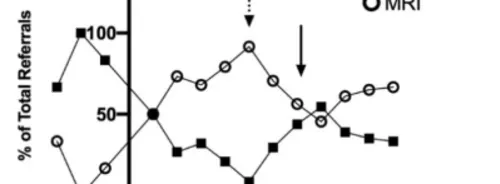The evolution of wearables into next-generation devices has catalysed a profound transformation in healthcare, driven by a convergence of technological advancements and a growing societal emphasis on proactive health management. From their origins as simple fitness trackers, wearables have evolved into sophisticated tools capable of providing continuous health monitoring, delivering on-demand therapy, and offering personalised interventions tailored to individual needs. The global COVID-19 pandemic has played a significant role in accelerating the adoption of these devices, as individuals seek remote solutions for health monitoring and management.
The Versatile Landscape of Next-Generation Wearables
Next-generation wearables encompass a diverse array of form factors, ranging from traditional wristwatches and fitness bands to innovative clothing, headsets, and discreet skin patches. These devices integrate an array of advanced components, including electrochemical sensors, artificial intelligence (AI) and machine learning (ML) algorithms, ultrasound transducers, electrodes, and drug delivery mechanisms. Such integration enables wearables to offer comprehensive health monitoring capabilities far beyond basic step counting or calorie tracking, thereby enhancing their utility in everyday life. The shift towards next-generation wearables has been driven by an increasing demand for personalized healthcare solutions that empower individuals to take proactive control of their well-being. Continuous health monitoring provided by these devices enables early detection of health issues, allowing individuals to intervene promptly and prevent potential complications. Moreover, remote monitoring capabilities empower healthcare professionals to monitor patients' health data in real time, reducing the need for frequent in-person visits and optimising resource allocation within healthcare systems.
Advancing Healthcare Through Continuous Monitoring
In the realm of disease monitoring, next-generation wearables leverage a multitude of sensors to track various physiological parameters, including heart rate, body temperature, and levels of specific biomarkers. Advanced AI and ML algorithms analyse this data to provide actionable insights and personalised recommendations for maintaining optimal health. For example, wearable patches equipped with multiple sensors can detect early signs of clinical deterioration and prompt individuals to seek medical attention, thereby potentially averting adverse health outcomes. Skin patches represent a particularly promising frontier in wearable technology, enabling continuous monitoring of wound healing and other physiological processes. These patches, often paper-thin and unobtrusive, can track biomarkers related to wound healing with remarkable accuracy, facilitating timely interventions and improving patient outcomes. Similarly, wearable ultrasound monitors offer non-invasive imaging capabilities, enabling healthcare professionals to assess organ function and detect abnormalities without the need for bulky equipment or specialised facilities.
Therapeutic Potential: Beyond Monitoring Towards Intervention
In addition to monitoring, next-generation wearables are increasingly being utilised for therapeutic purposes, including neuromodulation therapy and drug delivery. Wearable devices equipped with neuromodulation technologies can selectively stimulate specific brain regions or nerve pathways, offering effective management of chronic conditions such as pain, mental disorders, and urological/neurological disorders. Similarly, wearable drug patches leverage innovative delivery mechanisms, such as dissolvable microneedles or ultrasonic waves, to administer medications painlessly and efficiently, offering a convenient alternative to traditional oral or injectable therapies. Despite their immense potential, next-generation wearables face several challenges, including concerns related to data security and limited battery life. Addressing these challenges will require the development of robust security protocols and innovative energy-harvesting technologies to ensure the reliability and longevity of these devices.
Next-generation wearables represent a paradigm shift in healthcare, offering unprecedented opportunities for personalised, holistic health management. By empowering individuals with knowledge, tools, and actionable insights, these devices have the potential to revolutionise healthcare delivery and improve patient outcomes. As the field continues to evolve, ongoing innovation and collaboration will be essential in unlocking the full potential of next-generation wearables in transforming the future of healthcare.
Source: Omnia Health
Image Credit: iStock






